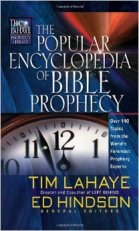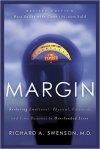Stressed? Do you have any idea why? How is that stressing you? Why is that important?

These are questions I ask the majority of care-seekers that visit my counseling room. Marriage problems, compulsive behaviors, additions, and faithlessness all share a common causation or contributor. Almost every issue that comes into the counseling room can be directly traced to the surrendering to God , and “attention management”; the

thoughtful application of our mental focus. We all have 24-hours in a day. Sleep 8-hours, you have 16-hours of attention left to manage. So many mistakes in our lives come from letting the wrong things capture our attentions, because of our will and our focus.
“Surrendering to God’s will” from a new Christian’s perspective, is about as abstract and nebulous an idea as you could have. It’s akin to

insisting “now you are going to breathe ultra-violet light“. When you are speaking of a spiritual endeavor to someone who has no idea how to see the spiritual, the best you can do is put the uninitiated learner in proximity to what they must learn. Religious giants have struggled with this concept. Look at this passage from John 3:6-12, where Jesus explains spiritual birth to Nicodemus, a member of the Jewish Sanhedrin ruling council:
Humans can reproduce only human life, but the Holy Spirit gives birth to spiritual life. So don’t be surprised when I say, ‘You must be born again.’ The wind blows wherever it wants. Just as you can hear the wind but can’t tell where it comes from or where it is going, so you can’t explain how people are born of the Spirit.”
“How are these things possible?” Nicodemus asked.
Jesus replied, “You are a respected Jewish teacher, and yet you don’t understand these things? I assure you, we tell you what we know and have seen, and yet you won’t believe our testimony. But if you don’t believe me when I tell you about earthly things, how can you possibly believe if I tell you about heavenly things?

Being in proximity of spiritual people and teaching is the best way to access an understanding of The Spirit. As Christians, we enjoy the resource of biblical wisdom to teach us three very important, manageable facets of attention (1) clarity, (2) priority, and (3) faith. If we accept the teaching of the Bible, over the teaching of the world, we will find great relief from the stresses of what competes for attentions.

Imagine you’re not an auto-worker, but wanted to assemble a car. The parts arrived in a parking lot with all the necessary tools. What’s the first thing you have to do? You have to achieve clarity. What are all these parts and what do they mean? In what order do they go together? Which tools do you use with which parts? In order to begin, you would have to read the manual so you could get clarity. You’ll probably need to start with books about automotive mechanical theory, just to get the overall idea of where the manual is taking you.

As you assemble your faith, you will have to read the manual – The Bible. With 66-books written over a 1500-year time frame, you’ll be well served to use additional books to help you understand what you are reading in the Bible. There are some recommendations that I found help me, and have helped may of my counselees.

Start with the Gospel of John, and then the other 3 gospels. I also recommend the Tim LaHay/Jerry B. Jenkins “The Jesus Chronicles” series which has 1 novel for each gospel writer. The novels are well-researched fiction, but fiction nonetheless. They will help you build the picture in your mind of the period about which you are reading. Then proceed through the balance of the New Testament, less Revelation. The prophecy books are the hardest to interpret, so you’ll need history in order to absorb them.
 Moving to the Old Testament, I recommend a survey book to be a companion as you read this part of the Bible. Norman L. Geisler’s “A Popular Survey of the Old Testament” is a solid piece of scholarship, written in simple and understandable language. “Chuck” or Charles R. Swindoll’s “Great Lives from God’s Word” also have some great background on the more prominant Old Testament characters.
Moving to the Old Testament, I recommend a survey book to be a companion as you read this part of the Bible. Norman L. Geisler’s “A Popular Survey of the Old Testament” is a solid piece of scholarship, written in simple and understandable language. “Chuck” or Charles R. Swindoll’s “Great Lives from God’s Word” also have some great background on the more prominant Old Testament characters.

 Finally, I’d recommend you venture into the prophecy books, particularly Isaiah, Ezekiel, Revelation/Daniel with some help. A group study is often available at your church. You may also use Bible.org. Tim LaHaye also has two books that are great resources. You really need to know the ancient history involved in these writings to make sense of them. Whatever you do, avoid The History Channel and a lot of the internet sites out there… they almost never get it right.
Finally, I’d recommend you venture into the prophecy books, particularly Isaiah, Ezekiel, Revelation/Daniel with some help. A group study is often available at your church. You may also use Bible.org. Tim LaHaye also has two books that are great resources. You really need to know the ancient history involved in these writings to make sense of them. Whatever you do, avoid The History Channel and a lot of the internet sites out there… they almost never get it right.
As you access your faith, you will find it will order your steps so you have more time for the most important things in your life. We’ve received comfort from His wisdom for millennia… This is from 3500 years ago:
Psalm 119:130-135 (NLT)
130 The teaching of your word gives light, so even the simple can understand.
131 I pant with expectation, longing for your commands.
132 Come and show me your mercy, as you do for all who love your name.
133 Guide my steps by your word, so I will not be overcome by evil.
134 Ransom me from the oppression of evil people; then I can obey your commandments.
135 Look upon me with love; teach me your decrees.

What is interesting is that the Jewish pilgrims would recite Psalm 119 “en masse” as they trekked together up Mt. Moriah for the Jewish feasts in Jerusalem (e.g. Passover, Booths, etc). 19th Century commentator Adam Clarke describes the method and motivation of Psalm 119 as the longest Psalm, broken out in twenty-two 8-verse sections.* Take a moment to imagine the pilgrim’s journey, plodding step-by-step up the mountain in large groups, each step a recitation anticipating closeness to God. The vivid picture of walking away from the world, spiritually disciplining ourselves to receive Him comes into view.

Verse 133 in this passage speaks so powerfully to the motivation behind this article. The psalm is a plea for God to take over the leadership of our lives, and a coming-to-peace with Him leading, rather than us. Surrendering to God has been the way of the righteous for millennia. It is how we find peace – we let Him order our steps. To do this, He has to become the top priority of our lives, and that begins our transformative process. This graphic was used in a previous posting, but it’s worth repeating. The “Handful of Priorities” is a simple way to biblically order our lives: God, family, work, church, and self in order from highest to lowest.

I recall the long period of resistance that I had toward God for many years. I wanted the “fire insurance” of salvation, but with the rest of life my pridefulness would be in charge. Asked if I would volunteer for work in the church, I explained to a friend “I don’t really have time for church work.” She responded, “I’ve discovered that if I make time for God, He makes time for everything else.

Today I see my resistance to accepting God as planner of my life as hubris. As a new Christian, still one-foot in the world, it only made sense to cobble my plan together from my worldly knowledge. Following that logic, it would be like your podiatrist deciding he wanted to do brain surgery, so he took his knowledge of feet into the operating room to work on your head.

Much like the pilgrims trekking up to the Temple, we walk one step at a time into our relationship with God. The physical journey is only a small part of our total journey. The big part is all about faith. It is by faith through grace that we are saved. It is also by faith that we are transformed, because it is God who has to do the work of bringing us to Him as we let go of the material things of the world. The Apostle Paul writes,
Romans 12:1-2 (NLT)
1 And so, dear brothers and sisters, I plead with you to give your bodies to God because of all he has done for you. Let them be a living and holy sacrifice—the kind he will find acceptable. This is truly the way to worship him.
2 Don’t copy the behavior and customs of this world, but let God transform you into a new person by changing the way you think. Then you will learn to know God’s will for you, which is good and pleasing and perfect.
 Attention management does have secular helps that should also be mentioned. There is a practical resource that I would like to refer to in this last section of the article. It is a book called Margin, Restoring Emotional, Physical, Financial, and Time Reserves to Overloaded Lives by Richard A. Swenson, MD. If you have a sufficient amount of “margin” in your life, you can withstand many of the issues that could hinder your life and your faith. A brief synopsis of the concept can be found in the following equation:
Attention management does have secular helps that should also be mentioned. There is a practical resource that I would like to refer to in this last section of the article. It is a book called Margin, Restoring Emotional, Physical, Financial, and Time Reserves to Overloaded Lives by Richard A. Swenson, MD. If you have a sufficient amount of “margin” in your life, you can withstand many of the issues that could hinder your life and your faith. A brief synopsis of the concept can be found in the following equation:

If you are running with positive margin, you have something left over when your load hits your power.
If you run short of power before your load is handled, you are running in negative margin.
If you run your life in positive margin, in time, finances, energy, positive relationships, family, and all of the resources God gave you, you will be much more happy and successful. Your “attention management” will have the room it needs to handle when something overwhelms one part of your life or another. You will have exercised good stewardship over the resources that God gave you.

very encouraging!
Thank you, Stacey 🙂